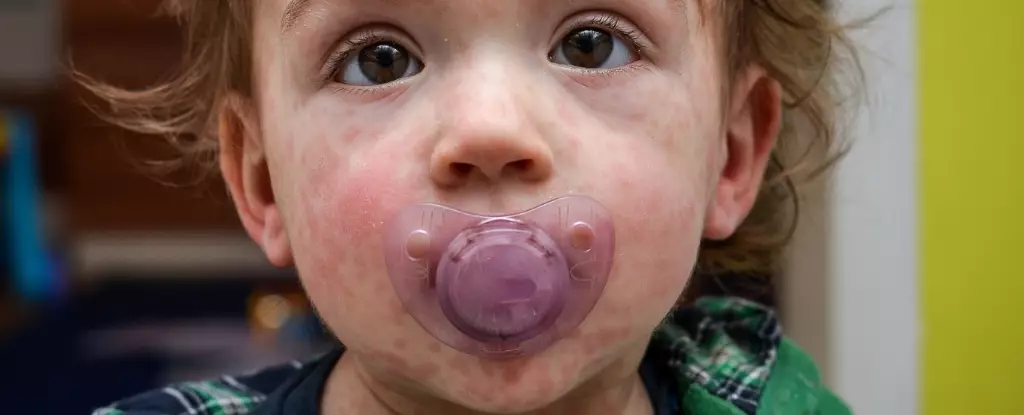The resurgence of measles in recent years presents a significant public health concern, underscoring critical deficiencies in global vaccination coverage. According to a joint report released by the World Health Organization (WHO) and the US Centers for Disease Control and Prevention (CDC), there were approximately 10.3 million reported measles cases worldwide in 2023. This figure represents a concerning 20 percent increase compared to the previous year, emphasizing that the gaps in immunization are not merely statistical but are translating into real-world consequences. The need for a renewed focus on public health infrastructure and vaccination initiatives has never been more urgent, particularly as the virus continues to pose serious risks to young children.
Measles is classified as one of the most contagious diseases on the planet. To effectively curb outbreaks, a staggering 95 percent vaccination coverage with two doses of the measles/rubella vaccine is required. Regrettably, the current statistics reveal that only 83 percent of children globally received the first dose of the measles vaccine in 2023. This level of coverage has stagnated since 2022, significantly down from the 86 percent pre-pandemic figure. Furthermore, only 74 percent of children received their second dose, signaling a critical failure in the routine health services on which millions rely. The implications of these figures are stark; without robust immunization efforts, the world risks allowing this preventable disease to flourish.
The ramifications of inadequate vaccination coverage are evident in the increasing number of countries grappling with significant measles outbreaks. In 2023, 57 countries experienced large-scale outbreaks, a stark rise from 36 nations in the previous year. Nearly every region worldwide has been affected, with the African region experiencing almost half of these outbreaks. This paints a particularly grim picture for vulnerable populations and reflects an urgent need for targeted vaccination strategies in regions where healthcare access remains limited. The virus, known for its potential to cause severe complications, notably took the lives of an estimated 107,500 people in 2023, with young children making up the majority of fatalities. While this represents an 8 percent decline from the preceding year, it is critical to recognize that any loss of life due to a preventable disease is unacceptable.
The WHO and CDC remain firm in their commitment to eradicate measles, yet the current trajectory raises concerns that the global ambition to eliminate measles by 2030 is under threat. At the conclusion of 2022, 82 countries had successfully achieved or maintained measles elimination—a significant accomplishment. Nevertheless, amid the rising cases and outbreaks, there is an urgent call for intensified immunization efforts, particularly in regions most impacted by the disease, such as Africa and the Eastern Mediterranean, as well as in areas experiencing conflict or instability.
Key health leaders, including Tedros Adhanom Ghebreyesus, the WHO chief, and CDC Director Mandy Cohen, emphasize the necessity of investing in vaccination programs. “The measles vaccine has saved more lives than any other vaccine in the past 50 years,” Ghebreyesus stated, reiterating the need to prioritize immunization for all individuals, regardless of their geographic location. The investments necessary for accessible healthcare and vaccination can lead to transformative outcomes that protect the most vulnerable populations.
As we confront the rising tide of measles infections, it is imperative for governments, health organizations, and communities to collaborate on comprehensive vaccination strategies. The urgency of ensuring that every child receives the full complement of measles vaccinations cannot be overstated. Protecting the next generation from this preventable disease is a collective responsibility that requires swift, sustained, and equitable action to avert a public health crisis and safeguard the lives of millions globally.


Leave a Reply